STEM Experts
Work and Research as a STEM Expert in the U.S. for Up to 5 Years
Explore Research Opportunities in the U.S.
The STEM Research Initiative provides talented researchers from around the world with the unique opportunity to accelerate innovation in collaboration with U.S. experts, companies, and institutions.
By allowing foreign nationals to conduct research in STEM fields in the U.S. for up to five years, this initiative promotes stronger global collaboration—enabling participants to explore and exchange ideas with accomplished peers, discover innovative approaches and technologies, and access opportunities for professional growth that may not be available in their home country. With the flexibility to conduct research at multiple businesses and institutions, foreign nationals involved in research and development will build a robust professional network overseas and return home with new tools and techniques for driving progress forward.
If you are a STEM participant, sign up at STEMTalentConnect.com to start your jorney.
STEM Research Initiative
The STEM Research Initiative provides talented foreign nationals with a simpler path toward exploring research and professional opportunities in STEM fields across the U.S.

You’ll have the opportunity to collaborate with innovative companies and institutions nationwide—from startups and Fortune 500 companies to universities and nonprofits. Advancing research and accelerating progress, you can choose to stay at one organization for the entire duration of your program or opt to transfer between multiple U.S. companies and institutions. With the flexibility to stay in the U.S. for as little as three weeks or as long as five years, you’ll have access to ample opportunities for gaining new skills and experiences, supporting your professional growth, and advancing your career.
Spearheaded by the White House of Science and Technology policy, the STEM Research Initiative (ECSRI) was designed to nurture STEM talent in the U.S. and beyond in order to build a stronger innovation ecosystem worldwide.
What is the STEM Research Initiative?
The STEM Research Initiative connects U.S. STEM businesses and research institutions across the United States with foreign nationals seeking STEM training and research experience through U.S. Department of State-designated sponsors.
Poised to significantly impact the lives and a careers of scientists from around the globe, this groundbreaking initiative is helping to build a brighter future for budding STEM professionals, filled with opportunity and growth. It accomplishes this in three key ways:
1. Increasing research opportunities
- Serving as a catalyst for corporations, foundations, and universities to recognize the vital role that allocating additional resources to STEM focused programs plays in driving innovation and nurturing the growth of scientists
- Ensuring scientists from around the world have access to opportunities to conduct groundbreaking research, advance their careers, and contribute to the global body of scientific knowledge
- Empowering STEM Experts to pursue ambitious projects and collaborate with leading experts and institutions in their respective fields
2. Improving collaboration between academia and industry
- Bringing together the knowledge, resources, and expertise of universities and private companies to help launch top-notch research
- Creating a vibrant ecosystem that drives research, innovation, and progress in the STEM fields
- Spurring job creation in STEM fields
- Providing opportunities for young STEM professionals to gain practical experience, enrich their skillsets, and apply their research to solve real-world problems
3. Delivering robust support for professional development
- Offering opportunities for hands-on education that create a solid base for future careers
- Improving access to the latest technologies
- Providing the chance to meet, network, and build community with other STEM professionals
- Establishing a way for international STEM professionals to share experiences, discuss ideas, and make lasting connections
- Fostering a lively, cooperative STEM ecosystem that helps young scientists flourish
- Paving the way for a new generation of scientific trailblazers
Benefits Overview
Short Processing Times
- Get approvals in 6-8 weeks on average
Relatively Inexpensive
- Program sponsor fees vary company to company
Straightforward Paperwork
- Less paperwork to fill out and file
- Doesn’t require complex involvement of legal departments or outside counsel
Eligibility Based on Exchange of Ideas in STEM Research (no lotteries!)
- Offers a more guaranteed path; not subject to a lottery system
- Initiative backed by the U.S. State Department for fewer USCIS hurdles
Stay in the U.S. up to 5 years
- Researchers can stay in the U.S. for up to 5 years, making a meaningful impact on your institution’s research and driving innovation at U.S. based STEM businesses
More flexibility. Fewer Restrictions.
- Researchers can travel, lecture, and attend relevant conferences
- Easy collaboration between research Higher Ed Institutions, U.S.-based companies, and economic development organizations
- No requirement to sponsor or host researchers for the entire five years
- They can easily transfer to other research facilities, academic Higher Ed Institutions, or U.S.-based companies
- More than one site of research activity allowed
- No caps on the number of researchers your organization can bring in
- No maximum on candidate age
Support Your Mission. Enhance the Academic Experience.
- Energize your institution, scholars, faculty, researchers, and other team members through exposure to diverse perspectives, new ways of thinking, and novel approaches to problem solving
- Build your institution’s international credibility, stature, and brand
- Attract more funding and donations
- Positively affect the lives of future professionals across borders
- Create and strengthen your overseas network to partner organizations
- Set your institution apart from the competition with innovative ideas and perspectives
Provide Resources for Your Local Community & Alumni
- Foster meaningful collaborations between academia and industry to extend your impact beyond your campus
- Support local innovation hubs, startups, and other businesses
- Create jobs and nurture innovation in your city, state, and beyond
- Expand U.S.-based companies’ access to a global STEM talent pool
How it Works

STEM Expert
U.S.-Based companies
Attorneys
Sponsor
Participation Guide: How to Get Started
1 | Find a research Opportunity
To begin your journey, explore the various programs and opportunities associated with the STEM Research Initiative. Keep an eye out for announcements from universities, research institutions, and private companies regarding internships, traineeships, and research positions. Once you’ve identified an opportunity that aligns with your interests and career goals, submit your application according to the specific requirements and deadlines.
In addition, a matching platform is currently being built to match foreign researchers to relevant STEM research opportunities in the U.S. Once launched, this platform can match you directly to research opportunities you may be qualified for.
2 | Coordinate with Your Host Company & Program Sponsor
Find a sponsor to work with on the application process and throughout the course of your researchers’ stay in the U.S.
3 | Prepare Paperwork & Apply for Visa
Once you’ve been accepted into a program or position under the STEM Research Initiative, you’ll need to apply for a J-1 Research Scholar Visa. This visa category is designed for STEM Experts participating in educational and cultural exchange programs in the United States, such as internships, traineeships, and research projects. Your program sponsor will help you with the paperwork and any documentation you’ll need to apply.
To apply for a J-1 visa, follow these steps:
- Receive your DS-2019 form: Your program sponsor will provide you with a Certificate of Eligibility for Exchange Visitor (J-1) Status (Form DS-2019). This document is essential for your visa application process.
- Pay the SEVIS fee: Before applying for your J-1 visa, you’ll need to pay the SEVIS (Student and Exchange Visitor Information System) fee. Keep the receipt as proof of payment for your visa appointment.
- Complete the DS-160 form: Fill out the Online Nonimmigrant Visa Application (Form DS-160) and print the confirmation page for your records.
- Schedule a visa appointment: Contact the U.S. embassy or consulate in your home country to schedule an appointment for your visa interview. Make sure to bring the required documentation, including your DS-2019 form, DS-160 confirmation page, SEVIS fee receipt, and any additional documents requested by the embassy or consulate.
4 | Plan for Your Visit
- Do you have particular objectives or goals for your time in the U.S.?
- Are there particular industry experts you want to build connections with?
- What is your timeline for coming to the U.S.? Do you have a specific start and end date in mind?
- How much funding will you need to support yourself while you’re in the U.S.? Consider the cost of living in your host city to determine what compensation you’ll require and what kind: an hourly wage, bi-monthly salary, a stipend, etc.
- Explore your funding options—what will your host company and home country contribute? Do you have enough savings to make up the difference?
5 | Start Your Research Project
- Undergo any required onboarding or new hire orientation at your host company or institution
- Meet your new colleagues and collaborators
- Get acquainted with your supervisor and define expectations for your position
- If you have particular expectations or goals for your research project, share them with your supervisor and team to see how they might be able to help.
6 | Use Your Host & Sponsor as an Ongoing Resource During Your Program
- Get help transferring your J-1 visa to other U.S. employers and academic institutions to continue your research
- Check in with your host and sponsor regularly in the event of any issues, questions, or concerns
- Coordinate participation of any opportunities to lecture, speak on panels, or present your research
- Find out if you’re eligible to attend specific lectures, conferences, and/or travel

About the STEM Research Initiative
The STEM Research Initiative is a collaboration between the U.S. Department of State, sponsoring organizations and U.S.-based companies electing to host foreign nationals involved in research and development at their organization. Developed by the State Department with the White House Office of Science and Technology Policy, the initiative was devised to make it easier for U.S.-based companies and institutions to tap into a diverse well of overseas talent and global perspectives. By nurturing collaboration between domestic and foreign researchers, it aims to advance innovation and accelerate STEM research in the U.S. and beyond.
Learn moreFAQs for STEM Experts
Want to read other user-specific FAQs?
Are candidates who possess Masters, and sometimes Bachelors, level STEM degrees qualified for the J-1 Research Scholar category and STEM Initiative?
Yes, 22 CFR 62.20(d) does not establish minimum education requirements nor preclude applicants with master’s and/or bachelor’s degrees from participating in the J-1 Research Scholar category.
As sponsors seek to pursue placements outside of traditional academic environments, some questions have arisen regarding the suitability of those placements. Can the Department elaborate on the appropriate duties of J-1 Research Scholars placed in private STEM-focused businesses?
As defined in 22 CFR 62.4(f), regardless of program length, research scholar activities may include research, lecturing, observing, consulting at research institutions, corporate research facilities, etc.Research scholars are expected to be able to share their expertise and perspectives through the provision of lecturing/teaching/training or consulting. While there will be some on-boarding of scholars and training in the context of learning about the operation of their hosting organizations, they should not be recipients of continuous training, which is more appropriate for other types of exchange visitor placements, such as the Intern and Trainee category. Exchange visitor research should be collaborative in nature, and any training to help prepare a scholar for a successful exchange should be incidental.Testing, preparing data for review; liaising between departments; and general laboratory duties‚ including the preparation of samples, operating and maintaining lab equipment, and keeping records of experimental results‚ are all considered appropriate duties by the Department.
Can research scholars conduct their research off-campus at more than one site of activity (STEM organization)?
Yes. Research scholars may be placed off campus at multiple sites of activity (STEM organizations) if their program objectives remain the same. Sponsors will need to first ensure that each host organization meets the relevant regulatory requirements and goals of the Exchange Visitor Program and that the necessary infrastructure is in place to host and support the research scholar. Please note that sponsors and host organizations are required to monitor the exchange visitor’s progress at each host organization, and all sites of activity should be listed in SEVIS.As a reminder, 22 C.F.R. ¬ß 62.10(d)(4) requires sponsors to report in SEVIS within ten business days any change in the exchange visitor’s current physical U.S. address, telephone number, email address, and/or primary site of activity.
Can you please provide some concrete examples of off-campus STEM placements in the Specialist Category?
Below are some concrete examples of how sponsors are implementing the STEM initiative in the Specialist category, based on a March 2023 data snapshot. All exchange visitors are on a STEM exchange connected to a Classification of Instructional Programs (CIP) code on the DHS STEM Designated Degree Program List.
- Personal Protective Equipment manufacturing company hosts a manufacturing engineering Specialist from Sri Lanka who advises on technical aspects of glove manufacturing and product development.
- Magazine and television company hosts a Specialist from the United Kingdom to share expertise in marine biology and environmental research.
- Television network hosts a Specialist from the United Kingdom to be a content contributor and subject-matter expert in the field of geology and earth science.
- Technology corporation sponsors and hosts a Specialist from Italy in the field of computer semiconductor engineering.
Does the STEM Initiative permit a sponsor to place a J-1 research scholar with a for-profit company and can the exchange visitor receive compensation or wages from the company?
Yes. Department-designated sponsors must have robust procedures in place to confirm the legitimacy of any host organization, lab, or office that will serve as a host their exchange visitors. Research scholars may receive wages or other remuneration as long as the individual is conducting research consistent with their original program objectives. STEM placements meet the regulatory requirements for specific categories of the Exchange Visitor Program.
Resources
Supplementary Resources for STEM Experts






